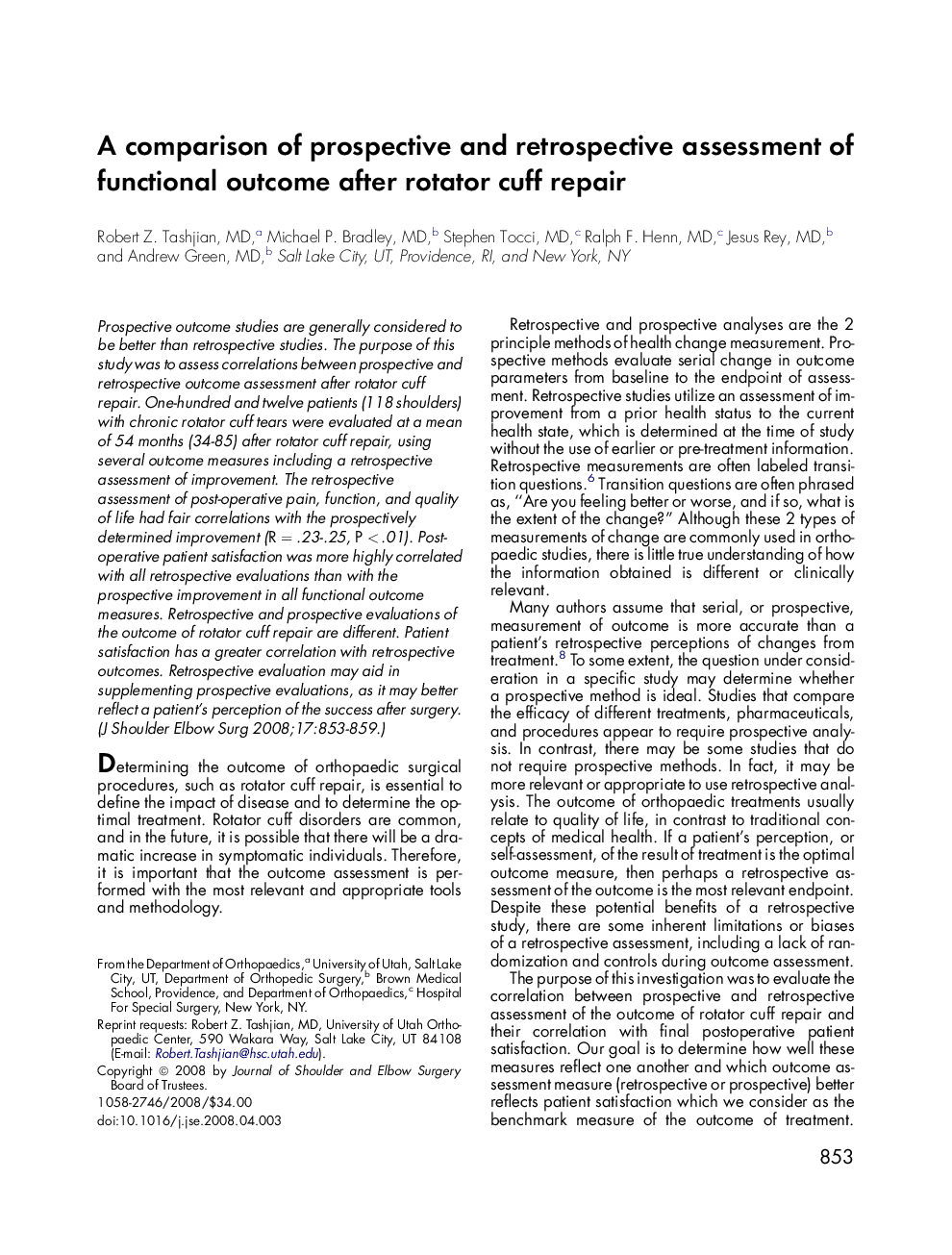| Article ID | Journal | Published Year | Pages | File Type |
|---|---|---|---|---|
| 4074722 | Journal of Shoulder and Elbow Surgery | 2008 | 7 Pages |
Prospective outcome studies are generally considered to be better than retrospective studies. The purpose of this study was to assess correlations between prospective and retrospective outcome assessment after rotator cuff repair. One-hundred and twelve patients (118 shoulders) with chronic rotator cuff tears were evaluated at a mean of 54 months (34-85) after rotator cuff repair, using several outcome measures including a retrospective assessment of improvement. The retrospective assessment of post-operative pain, function, and quality of life had fair correlations with the prospectively determined improvement (R = .23-.25, P < .01). Post-operative patient satisfaction was more highly correlated with all retrospective evaluations than with the prospective improvement in all functional outcome measures. Retrospective and prospective evaluations of the outcome of rotator cuff repair are different. Patient satisfaction has a greater correlation with retrospective outcomes. Retrospective evaluation may aid in supplementing prospective evaluations, as it may better reflect a patient's perception of the success after surgery.
